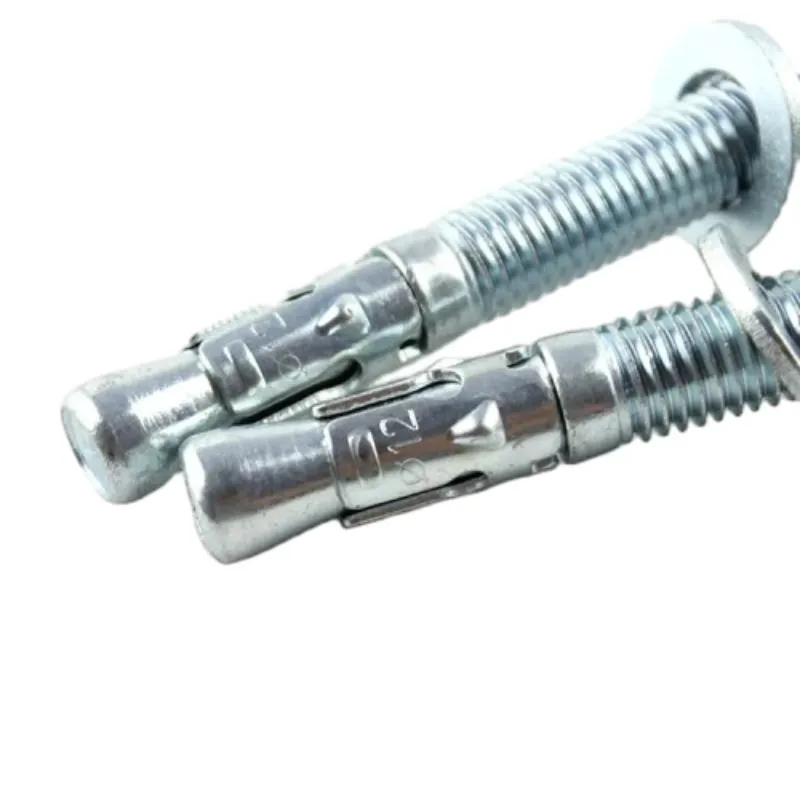নভে. . 27, 2024 01:52 Back to list
Stainless Steel Metric Carriage Bolts for Versatile Construction and Repair Applications
The Versatility and Strength of Stainless Steel Metric Carriage Bolts
When it comes to construction and various industrial applications, the choice of fasteners can significantly impact the durability and quality of the final product. Among the myriad of fastening solutions available, stainless steel metric carriage bolts stand out due to their exceptional characteristics. These bolts combine functionality, corrosion resistance, and ease of use, making them a popular choice for engineers, builders, and DIY enthusiasts alike.
What are Stainless Steel Metric Carriage Bolts?
Carriage bolts, also known as coach bolts, are a type of fastener that features a smooth, rounded head and a square neck that prevents them from turning when tightened. They are designed to be used in wood and have a unique shape that helps to distribute the load evenly. Stainless steel metric carriage bolts specifically refer to those manufactured according to metric standards using high-quality stainless steel. This material is resistant to rust and corrosion, making it suitable for both indoor and outdoor applications.
Key Features and Benefits
1. Corrosion Resistance One of the most significant advantages of stainless steel carriage bolts is their resistance to rust and corrosion. This characteristic is crucial in environments exposed to moisture, chemicals, or saline conditions. Whether used in marine applications, outdoor structures, or damp spaces, stainless steel bolts maintain integrity over time, reducing the risk of failure.
2. Strength and Durability Stainless steel offers superior tensile strength compared to many other materials. Metric carriage bolts can withstand heavy loads and high forces, making them ideal for structural applications. Their durability ensures that structures remain secure, enhancing safety in construction projects.
stainless steel metric carriage bolts

3. Ease of Installation The unique design of carriage bolts simplifies the installation process. The square neck of the bolt locks into place when placed into a pre-drilled hole, preventing it from spinning when a nut is tightened on the other end. This feature is particularly beneficial in applications where access to the bolt head is limited, allowing for efficient assembly without specialized tools.
4. Versatile Applications Stainless steel metric carriage bolts find applications in a wide array of industries. From furniture manufacturing to construction, landscaping, and marine uses, their versatility is unmatched. They can be used to fasten wooden structures, secure metal components, or even in automotive assemblies, providing strength and reliability across different sectors.
5. Aesthetic Appeal Stainless steel has a polished finish that not only offers functional benefits but also enhances the visual appeal of any project. When visible, stainless steel bolts can give a clean and professional look, making them an excellent choice for artisan furniture or architectural designs.
Choosing the Right Size and Specifications
When selecting stainless steel metric carriage bolts, it is vital to consider their size, length, and thread pitch, as these factors determine their suitability for specific applications. Metric measurements ensure compatibility with other components in metric systems, promoting ease of use and assembly. Bolt materials may also vary; options like A2 (304) and A4 (316) stainless steel provide different levels of corrosion resistance and strength, catering to various environmental conditions.
Conclusion
Stainless steel metric carriage bolts represent a blend of practicality and durability, offering a reliable fastening solution for a multitude of applications. Their corrosion resistance, strength, ease of installation, and aesthetic quality make them a preferred choice for both professionals and hobbyists. By understanding their features and applications, users can make informed decisions that enhance the longevity and quality of their projects. Whether constructing outdoor furniture or assembling critical structural components, the benefits of stainless steel carriage bolts are undeniable, making them an indispensable tool in the world of construction and manufacturing.


